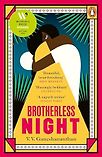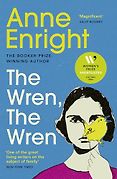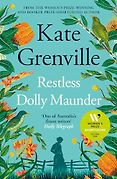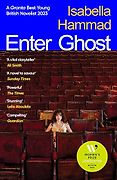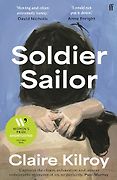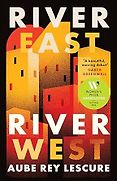What were you looking for when you were putting together the six-novel shortlist for the 2024 Women’s Prize for Fiction?
We weren’t looking for anything in particular, other than the Women’s Prize criteria: excellence, originality, and accessibility. All of those things can come in different forms. The longlist was very varied, so it was incredibly difficult to get down to a shortlist of six. Each of these books is a gem in its own particular way.
Our system is that each book under consideration is read by at least two judges. So each of us on the panel had an initial reading list of 70 to 75 books. So, it was a big task, but it was manageable. You can read 70-odd books thoroughly, then discuss them with your co-judges. This is the Women’s Prize system and I think it’s an excellent one.
Then let’s have a look at the novels on the shortlist—shall we start with this year’s winner—V. V. Ganeshananthan’s Brotherless Night? It’s set in 1980s Sri Lanka during the devastating civil war. Could you talk us through it: why did this book win the 2024 Women’s Prize for Fiction?
I mean, where to start? Once you’ve read this book, you’re never going to forget it. It’s absolutely searing, deeply moving. And it’s an utterly compelling piece of storytelling. There have been quite a few novels recently that have looked at the Sri Lankan civil war.
Notably Shehan Karunatilaka’s Booker Prize-winning The Seven Moons of Maali Almeida.
But this novel is unique in the way that it centres women’s experience of the war. She uses that lens of women’s experience to examine the impact on families, on the war of values that can tear families apart as much as the violence. And she’s unflinching in her commitment to complexity and nuanced and clear-eyed moral scrutiny of all sides of the conflict.
It’s a novel that rewards multiple readings as well, because it’s packed with historical detail. It ranges in scale from the intimate to the epic.
It feels like a good choice for the Women’s Prize. Of course, female writers are not always necessarily going to be writing women-centric stories, but it does feel like this prize makes space for stories of female experience to come to the fore.
I mean, there’s range within the shortlist. In Anne Enright’s The Wren, The Wren, Phil is a huge presence in the book, who dominates the family dynamic. So it varies, doesn’t it? I don’t think we can put women’s writing in a box. Women, at times, centre women’s experience. Other times they might choose a different perspective.
Well, shall we talk about The Wren, The Wren next? We’re going to step through the shortlisted books one by one. This is Enright’s eighth novel; The New York Times recently called her “one of the great living writers.” Would you tell our readers what they can expect of the book?
Yes. It’s an intergenerational saga set in Ireland, exploring the really messy, fraught relationship between Carmel and her daughter Nell. They’ve moved from being a very close single-mother, only-daughter unit to having quite a fractured relationship. It also encompasses the long shadow thrown over their family by Carmel’s father, Phil, who is now deceased but was a famous poet.
He’s a big absence, and also a huge presence in Carmel’s life. And he was a monstrous person in many ways. I mean, he abandoned his family, for instance. But it’s also “devastatingly easy”—that’s a phrase from the book—to love him, because he was so charming.
“The Women’s Prize criteria are: excellence, originality, and accessibility. All of those things can come in different forms”
Through Phil, Anne Enright raises a lot of questions about art. For instance: is it possible to separate the art and the artist? If the person who has produced the art has done terrible things in their life, does that affect how you view that art?
Phil’s poems also appear in the book, which is quite an original feature. And those poems are absolutely brilliant, as well. So there’s a lot going on in this novel. It’s centred on family relationships, but it raises those bigger questions about art as well.
Absolutely. Now our third title does focus on female experience. This is Restless Dolly Maunder by the Australian writer Kate Grenville. I know her early novel The Secret River very well. This is also a historical novel, but this time based on her own grandmother’s life.
Yes, it’s a historical novel that begins on a sheep farm in New South Wales in the 1880s. It goes right through until the 1950s. In Dolly we have a character who constantly fights against the constraints placed on her as a woman in a man’s world. And she pays a really high price for her nonconformity. She builds a business, loses everything, is forced to start over. But she never loses her fighting spirit.
Grenville’s prose is just immaculate: simultaneously plain and poetic. She conjures up those very harsh and beautiful landscapes so perfectly. It’s a book that transports you to another time and place, and all of us judges fell in love with Dolly—we were there for the pain and the beauty of all Dolly’s struggles.
I love that. Thank you. Shall we look at Isabella Hammad’s Enter Ghost? This is a novel that follows a British Palestinian actor taking part in a production of Hamlet in the West Bank. What did the judges admire about it?
It’s a very accomplished piece of storytelling. It weaves history, politics, and family with a profound meditation on the purpose of art. It’s very nuanced, multi-layered, gorgeously written.
And it’s original—because it plays with form. Parts of the book are written as a script, fo example. And it asks deep questions about the purpose of art: whether it can be a form of resistance; whether a play written centuries ago can resonate with the lives of people in the West Bank in the present day. It’s very subtle, its outlook. Very humane. It’s generous, compassionate.
It’s a book you won’t necessarily romp through. But you sink into it, and then you really reap the rewards. There’s a lot of food for thought.
It’s interesting that this is another book that reflects, through fiction, on the function of art. I suppose this is in a more political context?
A political context, a social context, an intellectual context. It’s thinking about all dimensions of art: Can it uplift the human spirit? Is it just entertainment, or can it be more meaningful than that? What is art for?
Claire Kilroy’s Soldier, Sailor—a novel about early motherhood—also made the 2024 shortlist for the Women’s Prize for Fiction. I was very intrigued by the Guardian review, which said it is “brief, but utterly remorseless.”
The word that came up most frequently during the judging meetings when we spoke about this book was “visceral.” It’s a gut-punch of a book, which provokes so many emotions in the reader: sorrow, rage, tenderness, laughter—it’s often funny, you know. The whole range. It balances the light and the dark. And it’s suffused with love.
It’s written in the form of a love letter from ‘Soldier,’ as she calls herself, to ‘Sailor,’ her son. Alongside the grief and the rage there are comedic aspects—of trying to make dinner and bath a baby at the same time, and the disasters that ensure. What did you say they called it? Brief, and—
Remorseless.
Well, I don’t agree with that. The ending is almost metaphysical, it’s philosophical. You stand back and think about the big picture of life and this eternal cycle that we’re in, generation after generation. It’s uplifting, actually.
I like that. A recasting. The final book on your shortlist is Aube Rey Lescure’s debut novel River East, River West. It’s a coming of age story set in rapidly developing China.
Alva is one of the protagonists. She’s a moody, rebellious teenager who is starting to pull away from her mother, a white American woman. Alva has a dual identity—she has a Chinese father who she doesn’t know, and an American mother. She’s in the midst of grappling with who she is and who she wants to be.
This is Shanghai in the mid 2000s, and the country is in a state of flux—starting to open up to the outside world. This sort of mirrors the state of flux that she’s going through internally. She starts at a local Chinese state school, but really wants to attend this international American school that she manages to go to in the end. But she’s an outsider at both places. So there’s a lot about identity and belonging and homeland and colonialism all tackled in a really seamless way and integrated into the narrative.
Then there’s a second perspective devoted to Lu Fang, the Chinese businessman who Alva’s mother marries. Through Lu Fang, we get a sweep of Chinese history, from the Cultural Revolution onwards. So it’s a book that tackles big themes and a lot of history, but always through a propulsive narrative that keeps you turning the pages.
Did you notice trends among the submissions?
Certainly, in our initial reading, we found a lot about migration, immigration, displacement—which is not surprising, giving that’s often in the enws at the moment. It’s something that countries and societies are grappling with on a daily basis.
The environment was a theme that came up quite often as well. And, as with Restless Dolly Maunder, how the work of women has often been under-recognised and under-paid, and the constraints under which women, in particular, must operate under.
Interview by Cal Flyn, Deputy Editor
June 18, 2024. Updated: December 2, 2024
Five Books aims to keep its book recommendations and interviews up to date. If you are the interviewee and would like to update your choice of books (or even just what you say about them) please email us at [email protected]
Five Books interviews are expensive to produce. If you've enjoyed this interview, please support us by donating a small amount.

